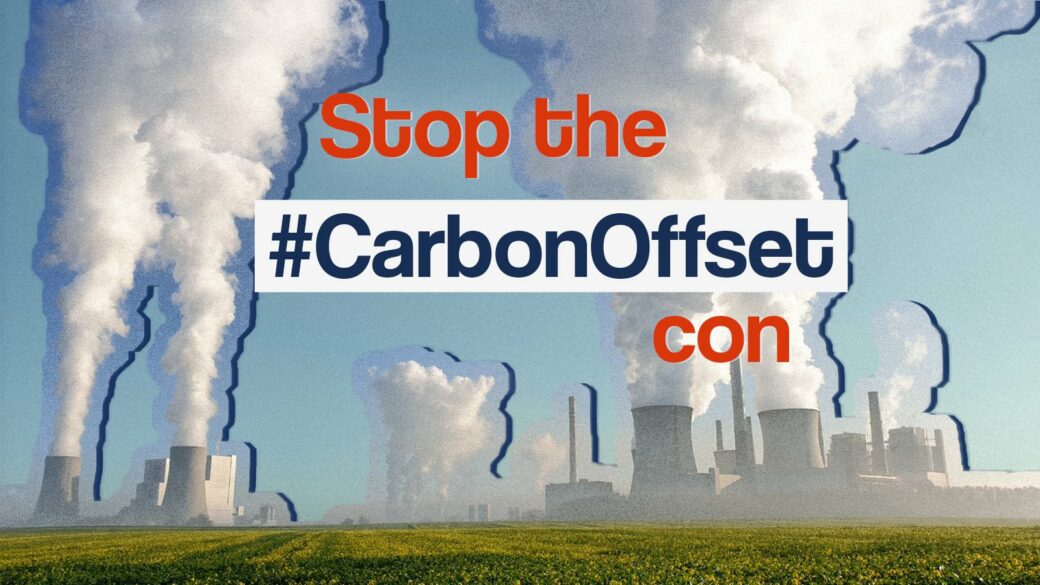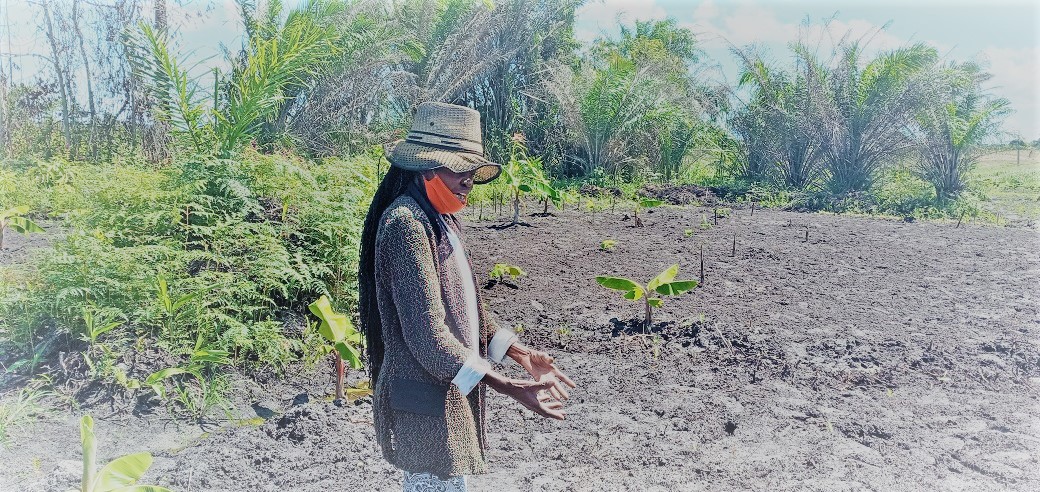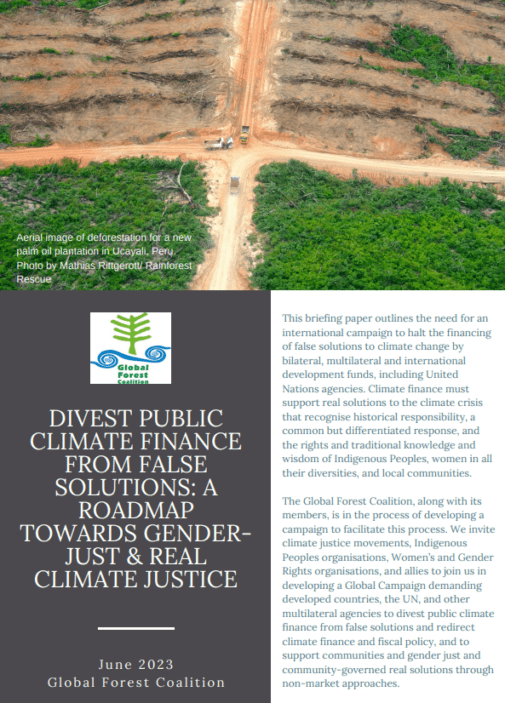Llamamiento para que la UE rechace las compensaciones de carbono tras el escándalo de la mayor certificadora voluntaria de compensaciones de carbono

En noviembre de 2022, la Comisión Europea presentó una propuesta de Reglamento de la Unión Europea (UE) sobre la certificación de las actividades que eliminan carbono de la atmósfera (la llamada ‘remoción de dióxido de carbono’), que incluía normas mínimas voluntarias para las empresas que certifican compensaciones voluntarias de carbono. Menos de dos meses después, una investigación de la revista semanal alemana Die Zeit y del periódico británico The Guardian, con el apoyo de la organización no gubernamental (ONG) SourceMaterial demostró, una vez más, lo defectuoso que es el mercado de compensaciones voluntarias de carbono. Una investigación de la ONG holandesa de investigación “Follow The Money” subrayó el alcance de los fallos al mostrar cómo se había permitido al operador de uno de los mayores proyectos de compensación del continente africano seguir vendiendo créditos de compensación a pesar de que el vendedor sabía que el proyecto estaba sobreestimando la supuesta evitación de emisiones.
Las investigaciones se centraron en las compensaciones por “deforestación evitada” que han sido auditadas según el Estándar Verificado de Carbono (VCS). El VCS está administrado por Verra, un desarrollador de normas de compensación de carbono cuyas normas respaldan el 75% de todas las compensaciones de carbono vendidas en el mercado voluntario de carbono.
La UE debería tomar el fracaso del modelo de negocio de Verra como una indicación de la necesidad de dejar de promover las compensaciones como una forma válida de acción climática.
Continuar leyendo en inglés…
A global team of academic researchers assessed 29 projects that claimed to have saved a total of 89 million carbon credits, equivalent to the annual emissions from Greece and Switzerland combined. The researchers found that over 90 per cent of the credits were based on implausible claims that emissions had been avoided – making them, in the words of the journalists, “a heap of junk”.
The investigations found numerous examples of project developers interpreting methodologies in their favour and auditors approving carbon credits based on hugely inflated estimates of how many emissions were avoided. The mass generation of junk credits doesn’t come as a surprise to many in the offsetting industry, with a broker noting that “methodologies have been so flexible that anything goes…[y]ou could choose the best option to maximise your profit.”
How is it possible for such an obvious scam to go on for well over a decade? One of the researchers, who has been a long-time observer of the offset market explained: “There is simply nobody in the market who has a genuine interest to say when something goes wrong”.
Reacting to the investigations, rating agencies and a representative of the GoldStandard pointed out that ‘avoided deforestation’ projects are not the only type of project whose methodologies create ‘junk credits’ due to inflated calculations of alleged emission reductions. The co-founder of carbon offset rating agency Calyx Global, Donna Lee, noted that her team has assessed nearly 70 Reduced Emissions from Deforestation and Degradation (REDD) projects and that “for many project types we find high variability in our ratings. This is true for everything from landfill gas and cookstoves to forest carbon credits”.
These problems continue despite the fact that all these offset projects have been assessed against carbon standards like Clean Development Mechanism (CDM), VCS or GoldStandard, and received the stamp of approval following third-party audits of offset methodologies.
Voluntary standards have been part of international carbon markets for as long as they have existed. They have prevented neither the massive generation of junk credits, nor human rights abuses, environmental harms, and land conflicts. The problem has been particularly stark in connection with ‘avoided deforestation’ and tree planting offset projects. Nothing in the European Commission’s proposed voluntary EU certification framework would fare better than past failed attempts to elaborate rules for “an industry where, for many, flaws have become the norm.”
Given the numerous problems even within projects certified by Verra, no offset certifiers should be endorsed by EU climate policy. There is a danger that certification would imply that such offsets were “high quality”, legitimising a failed attempt to address the climate crisis.
Pushing ahead with a proposal that is likely to incentivise generating even greater volumes of climate-damaging junk credits is reckless, particularly given the urgency with which we must reduce emissions this decade. Offsets are not equivalent to reductions. The latest media investigations have reiterated that even after 20 years of carbon markets, there is nothing that can be done to stop the generation of meaningless offset credits.
If averting uncontrollable climate chaos is the objective, offsets have no place in the policy toolbox. We therefore demand that the European Commission does not legitimise a market whose holes are so deep they can never be filled.
Signed
Fern
Institute for Agriculture & Trade Policy
Carbon Market Watch
Climate Action Network Europe
Ecoropa
Friends of the Earth Europe
Corporate Europe Observatory
European Coordination Via Campesina – ECVC
ClientEarth
ECOS
WeSmellGas
Real Zero Europe
Food and Water Action Europe
Global Forest Coalition
ICLEI – Local Governments for Sustainability
Indigenous Peoples Global Forum for Sustainable Development
Women’s Environment and Development Organization
Envol Vert
Friends of the Earth International
Women’s Earth and Climate Action Network
ActionAid
Changing Markets Foundation
Indigenous Environmental Network
Center for International Environmental Law
Corporate Accountability
Stay Grounded
Forests of the World
NOAH Friends of the Earth Denmark
Finnish Association for Nature Conservation
CCFD – Terre Solidaire
Canopée
Coordination gegen BAYER-Gefahren
Aktionsgemeinschaft Solidarische Welt e.V. ASW
ARA
FDCL – Center for Research and Documentation Chile-Latin America
FIAN Deutschland
German Environmental Action (Deutsche Umwelthilfe e.V.)
BUNDjugend (Young Friends of the Earth Germany)
Friends of the Earth Germany (BUND e.V.)
Iceland Nature Conservation Association
Recommon
Leefmilieu
Landelijk Netwerk Bossen- en Bomenbescherming.nl
Federatie tegen Biomassacentrales
De Klimaatcoalitie
Comité Schone Lucht
Social Tipping Point Coalitie
Feedback EU
ZERO – Associação Sistema Terrestre Sustentável
Reformaten
Protect the Forest
Klimataktion
Skiftet
Fridays For Future Sweden
Friends of the Earth Sweden
Biofuelwatch
Feedback Global
Gladstone Conservation Council
Environment East Gippsland
Victorian Rainforest Network
Environment East Gippsland inc
The Australian Rainforest Conservation Society
Association pour l’Integration et le Developpement Durable au Burundi (Indigenous Forum in the UN ECOSOC status)
Climate Action for Lifelong Learners (CALL)
Nature Nova Scotia
AbibiNsroma Foundation
Coorg Organisation for Rural Development
UNISC International
Biodiversity Conservation Center
Family Farm Defenders
The New School
Olympia Movement for Justice and Peace
Pivot Point
RACE
Global Justice Ecology Project
Rainforest Action Network – RAN
Global Justice Ecology Project
Peter Somerville, University of Lincoln
Diego Portugal – NbS Consultant
source: FERN







